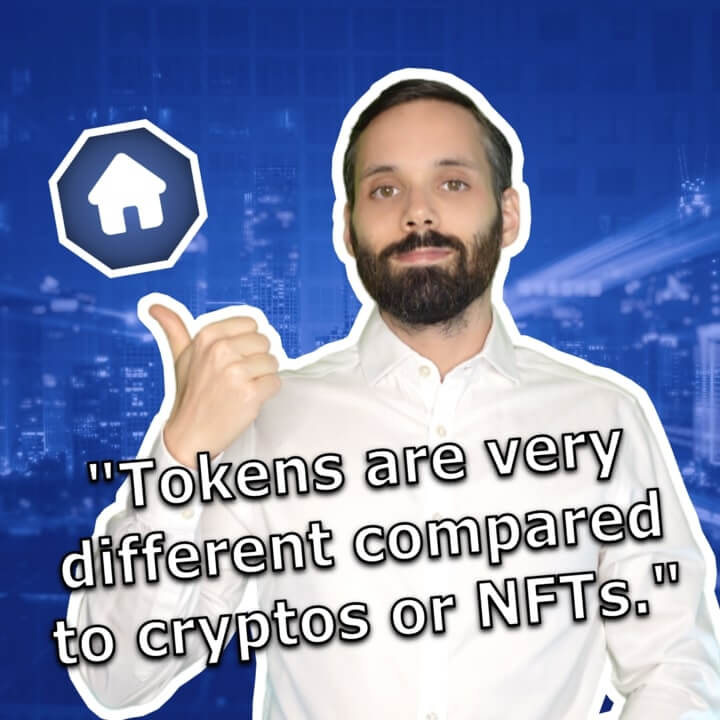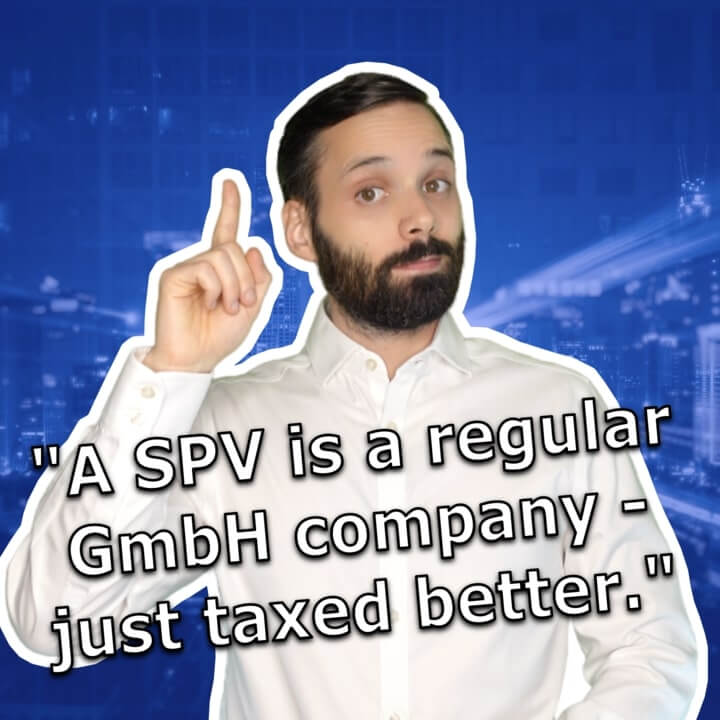Real Estate Crowdfunding
Many people want to invest in real estate (in Germany) without spending large amounts of money. Real estate crowdfunding might be the perfect solution. Find out in our GermanReal.Estate Wiki.
Key Takeaways
- Real estate crowdfunding can be a great alternative to investing in (German) properties aside from buying a property yourself
- Different types of real estate crowdfunding will reward the crowd in different ways (e.g. fixed interest rate)
- Real estate crowdfunding offers many benefits (e.g. it’s affordable) but also some downsides (e.g. transparency)
- Is real estate crowdfunding a good investment for your personal financial situation? Find it out in this article!
What Is Real Estate Crowdfunding?
First let us understand that real estate crowdfunding, crowdlending, crowdfinaning, crowdinvesting, and real estate peer-2-peer (P2P) are all the same. There are slight variations based on the different types of crowdfunding, but generally speaking, all the terms above mean the same thing. So what is real estate crowdfunding? How does it work and should you invest in it? 🤔
Let’s imagine you find a property that you would like to invest in for 100.000€ (or any other amount of money). Traditionally, you would go to a German bank and apply for a mortgage. That is unfortunately not as easy as it sounds because banks demand a lot of documents, a solid financial situation, and maybe even a property valuation from a professional real estate appraiser.
With the rising property prices in Germany over the last few years, we see more and more banks declining mortgage applications. It does not necessarily mean there is something wrong with your financial situation, the bank might not like the property you want to invest in or your mortgage is not suiting the bank’s mortgage strategy. What do you do now? 🤔
If you find the property is an interesting investment, other people might share your opinion. Instead of raising money from a single source (e.g. bank), you can also raise money from many different other investors that would like to invest in the same property. As you get money from the crowd, hence the name for this type of real estate investing is called crowdfunding. Depending on the type of real estate crowdfunding you would reward the crowd with an interest rate of a share of the property.
Different Types Of Real Estate Crowdfunding
When many investors join forces in order to fund a property purchase by crowdfunding, they want to be compensated for their investment. The exact compensation for the crowd will vary based on the type of real estate crowdfunding. Generally speaking, there are 3 pure types of crowdfunding as well as one mixed type:
- Primary-rank loan crowdfunding: When financing with the crowd only, you are basically replacing the mortgage from a bank with investment from the crowd. That is why the crowd would most likely receive a fixed interest rate as compensation for participating in this type of real estate crowdfunding (variable interest rate also possible). If something would go wrong with the property investment, the crowd would receive money first as they have a loan with primary rank.
- Secondary-rank loan crowdfunding: When a bank is involved in the property purchase (e.g. the property is being funded with a mixture of crowdfunding and mortgage), the bank will always require the primary rank. In that case, the crowd will receive the secondary rank only. As the risk is higher than with a loan with a primary rank, the crowd probably wants a higher interest rate with a secondary rank than with a primary rank.
- Equity crowdfunding: It is important to understand that the crowd does not own the property in the prior 2 types of real estate crowdfunding (the crowd acts as a bank giving a loan). If the crowd wants to own a piece of the property, it is equity crowdfunding. In this type, investors will receive a share of the (net) rental income as well as a share of the resale value of the property (based on how much they invested as a total share of the crowd).
- Mezzanine crowdfunding: All 3 types of real estate crowdfunding mentioned so far have their unique advantage (primary-rank crowdfunding: security, secondary-rank crowdfunding: higher return, equity crowdfunding: participation in the increase of the property value). Mezzanine crowdfunding can combine the advantages of the prior real estate crowdfunding types as it is a mixture of 2 types or even 3 types.
As our real estate security tokens are real financial securities based on the blockchain technology, they are not real estate crowdfunding. If anyone would want to force a comparison between security tokens and crowdfunding, then our first investment in Mönchengladbach: Welcome Home and our Community Portfolio: New Consctructions would be mezzanine crowdfunding. The real estate security token offers investors a fixed interest rate as well as a share of the resale value of the property.
Real estate security tokens bring real estate crowdfunding to the next level. Investors can not just profit from passive income but also from rising security token values. And investors can vote on the security token strategy!
Benefits & Downsides Of Real Estate Crowdfunding
After learning about the different types of real estate crowdfunding, it becomes apparent that there must be different advantages and disadvantages for real estate crowdfunding (compared to other forms of investing in real estate like REITs or real estate ETFs). Read more about the benefits and downsides of real estate crowdfunding below:
Benefits Of Real Estate Crowdfunding
- Real estate crowdfunding starts at a lot lower minimum investment than buying a property yourself in the traditional way (some platforms start at 500€).
- The lower minimum investment amount in real estate crowdfunding makes it easy to diversify your portfolio than if you would have to invest thousands of Euros.
- Registering for a real estate crowdfunding platform is much easier than going through the traditional property purchase process with mortgage, notary, etc.
When done right, real estate crowdfunding is a very easy way to invest in real estate (in Germany). You can just invest and chill without having to deal with tenants, banks, or anyone else.
Downsides Of Real Estate Crowdfunding
- Most real estate crowdfunding platforms severely lack transparency. You don’t get to know a lot about the property or the experience of the people behind it.
- Real estate crowdfunding platforms are quite new and came up with the latest improvement in technology. So far they have hardly any successful track record.
- With the World Bank expecting a recession & UBS calculating higher real estate bubble risks, we don’t know the impact of crashing property prices on crowdfunding.
To ensure as much transparency as possible with our investors, we publish regular videos on our YouTube channel or articles on our blog, our FAQ, or our real estate Wiki.
Should You Invest In Real Estate Crowdfunding?
Now that you know all about the different types of real estate crowdfunding as well as their advantages & disadvantages there is only one question left to answer: Should you invest in real estate crowdfunding? 🤔
The idea to divide exciting investment properties into multiple parts in order to lower the investment barriers for investors is great and offers a lot of benefits. That is why we at GermanReal.Estate are doing that as well with properties on our marketplace you can invest in with real estate security tokens.
Before investing in real estate crowdfunding with any platform, we recommend doing a lot of due diligence about the properties you want to invest in as well as the real estate crowdfunding platform itself (especially when they are outside of Germany with different tax rules). Who are the people behind the platform what is their prior experience in the (German) real estate industry? Do they have a successful real estate investing track record?










Pingback: Immobilien-Crowdfunding | GermanReal.Estate
Pingback: Benefits Of Tokenized Real Estate | GermanReal.Estate
Pingback: Blockchain | GermanReal.Estate
Pingback: Real Estate Crash - All Information at a Glance! | GermanReal.Estate
Pingback: Invest Money in Securities - We Can Help You! | GermanReal.Estate
Pingback: Security Token | GermanReal.Estate
Pingback: Why Are We Using The Blockchain Technology? | GermanReal.Estate
Pingback: REITs In Germany | GermanReal.Estate
Pingback: Passive Income & Real Estate: Is That Possible? | GermanReal.Estate
Pingback: Rents In Germany | GermanReal.Estate
Pingback: How Inflation Impacts Real Estate Investors | GermanReal.Estate
Pingback: Real Estate Bubble Index | GermanReal.Estate
Pingback: Location Ranking (A, B, C & D) | GermanReal.Estate
Pingback: Global Real Estate Crash In 2023? | GermanReal.Estate
Pingback: Taxation of Securities - What You Have to Consider! | GermanReal.Estate
Pingback: Rising Real Estate Prices - Here Are the Best Tips! | GermanReal.Estate